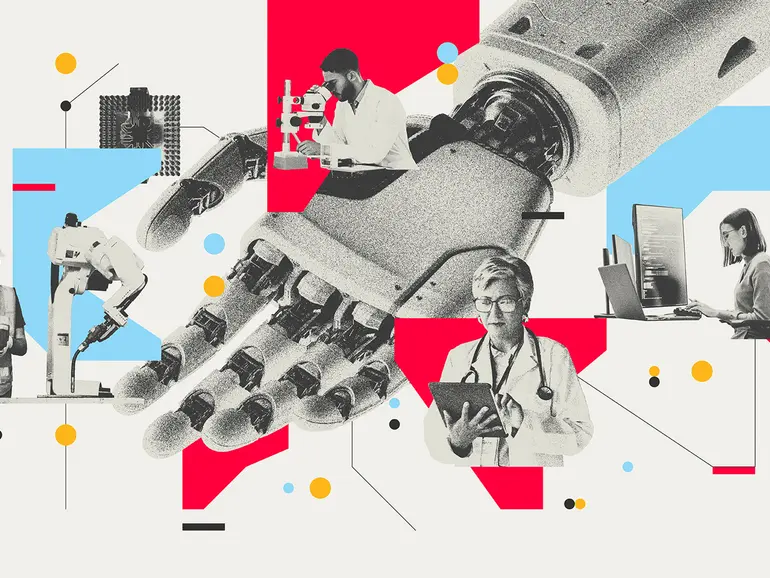The rise of smaller ‘meek models’ could democratize AI systems
AI systems built or run with limited resources could soon perform on par with leading larger models while costing much less, according to new research.

Faculty
Neil Thompson is an Innovation Scholar at MIT’s Computer Science and Artificial Intelligence Lab and the Initiative on the Digital Economy. He is also an Associate Member of the Broad Institute.
Previously, he was an Assistant Professor of Innovation and Strategy at the MIT Sloan School of Management, where he codirected the Experimental Innovation Lab (X-Lab), and a Visiting Professor at the Laboratory for Innovation Science at Harvard University. He has advised businesses and government on the future of Moore’s Law and Machine Learning, and has been on National Academies panels on transformational technologies and scientific reliability.
He did his PhD in business and public policy at UC Berkeley, where he also did Master's degrees in computer science and statistics. He has a Master's in economics from the London School of Economics, and undergraduate degrees in physics and international development. Prior to academia, he worked at organizations including Lawrence Livermore National Laboratories, Bain and Company, The United Nations, the World Bank, and the Canadian Parliament.
Kuhn, Jeffrey M., and Neil Thompson. International Journal of the Economics of Business. Forthcoming.
Thompson, Neil C., and Douglas Hanley, MIT Sloan Working Paper 5238-17. Cambridge, MA: MIT Sloan School of Management, September 2017.
Thompson, Neil. 2012.
Thompson, Neil. 2012.
Thompson, Neil. 2012.

AI systems built or run with limited resources could soon perform on par with leading larger models while costing much less, according to new research.

To realize the greatest gains from artificial intelligence, we must make the future of work more human, not less.
Moore's law, the observation that the number of transistors in an integrated circuit doubles about every two years, may be hitting its limit. Transistors are getting so small that experts say the laws of physics are slowing the reliable pace of progress. "During the heyday of Moore's law miniaturization gave us chips with more transistors, and it also meant that each transistor used less power," principal research scientist Neil Thompson said. "Today, miniaturization is giving us much smaller reductions in power, and so trying to cram in too many transistors produces a lot of heat and can melt a chip."
In this interview with principal research scientist Neil Thompson, he said: "Historically, when new technologies have come in and automated things, humans have moved to doing new tasks. New tasks are created that didn't exist before but are actually important for employment. We really don't know what those new tasks are going to be ahead of time. But historically, there's been a remarkable wellspring of new tasks and new jobs that have emerged."
A comprehensive survey of quantum algorithms and potential deep learning applications, by principal research scientist Neil Thompson and co-authors, reveals that, despite theoretical gains in areas like matrix multiplication, current quantum hardware struggles to outperform classical computers on realistically sized problems.
Principal research scientist Neil Thompson said: "The trick for reporters over the coming years will be how to harness the positive productivity-improving aspects of AI while keeping the bedrock of trust intact."